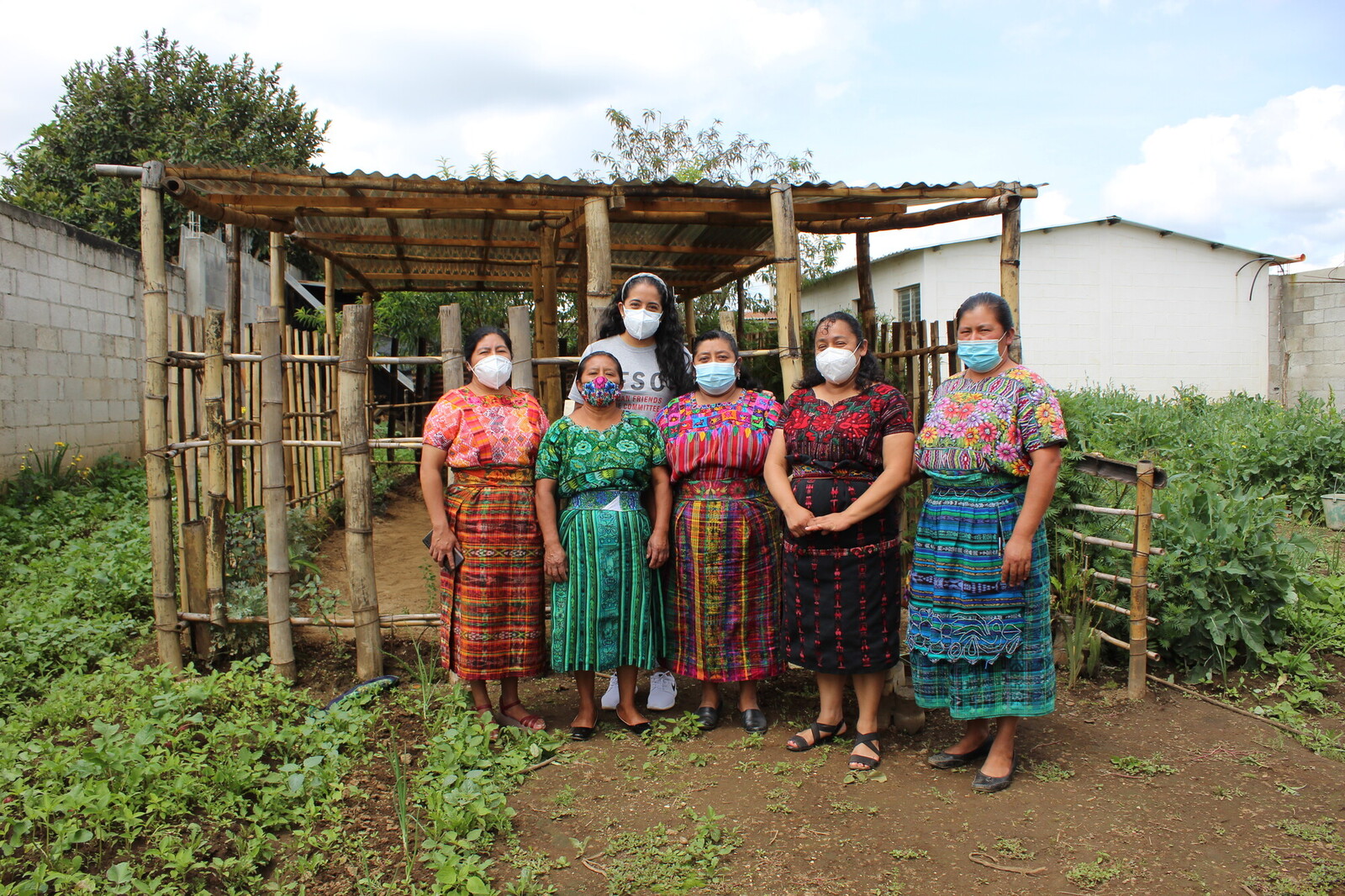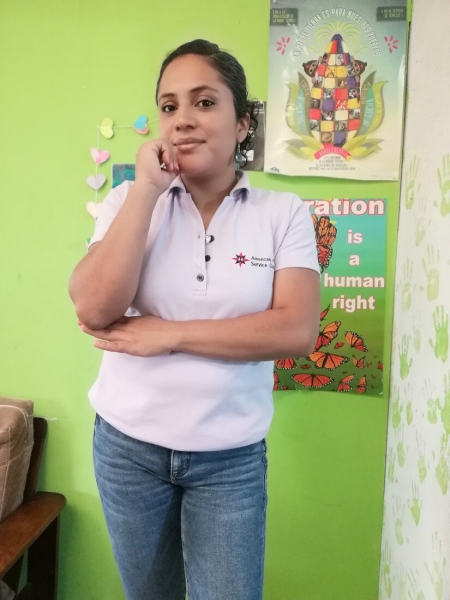
Health is a fundamental right for all people. When people become aware that health goes beyond caring for the body, they seek more comprehensive care. They incorporate the individual and the collective, and in so doing, they build community.
This is not something new. The original Mayan peoples recognized the importance of the wellbeing of the body, spirit, and mind in harmony with Mother Nature. They had a dialectic relationship with plants and their healing properties.
Since 2008, the Association of Women Entrepreneurs Balanyá (AMEB) has organized in the Mayan Kaqchikel territory of Canton La Union, in the municipality of Santa Cruz Balanyá. They are promoting and strengthening the participation of women in the family economy of their community. In 2021 they initiated a project to provide alternatives for healthcare. They are doing this through the recovery of their ancestral practices of cultivating and using medicinal plants.
Guatemala has one of the highest rates of gender inequality in Latin America. Mayan women are violated by a patriarchal, colonialist, and capitalist system that discriminates, impoverishes, and excludes them. However, it is these women who resist, promote new leadership, defend their worldview, and promote ancestral practices for collective care. They are sharing their inherited wisdom and defending their territories. And they are raising their voices against an oppressive system that has historically controlled their bodies, territories, and culture.
AFSC's Peace with Social Justice Program in Guatemala is accompanying them in their struggles to defend their autonomy by recovering ancestral medical practices and promoting their individual and collective care.
We started working with AMEB in 2021 with the aim of creating the first community garden of medicinal plants using agroecological approaches. This project was led by the women together with their daughters and sons. They have given life to a small community garden. Today you can find different types of plants for medicinal use growing there, such as basil, rue, wormwood, insulin, thyme, peppermint, mugwort, and chamomile. Each was historically used by the Mayan people.
Lucía, a Kaqchikel Mayan woman and leader who is part of AMEB, spoke to the importance of the community garden. She shared their concern for the health of families and the lack of resources for their care. "It was at that moment when we asked ourselves: How did our grandmothers treat these diseases? And it was there, in that space of exchange, that we retook the grandmothers' and grandfathers' advice, through the practices of caring for the land, choosing seeds, caring for the plants, and harvesting the crops."
In addition to the benefits of consuming medicinal plants for health, AMEB's women leaders are promoting new nutritional and care habits for their families. Among their future projects are the dehydration of plants to make teas or infusions and the construction of a medicine bank for women. They are also planning for the exchange of medicinal plants for other products of daily consumption. For them it is a priority to recover the practices that their ancestors used for centuries for the care of life and to restore faith in the use of medicinal plants.
The process of recovering these practices has motivated them to dream and to develop new plans for community organizing and the exchange of knowledge. This is impacting their lives and those of their families and neighbors. Lucia says, "I was curious to see how they were sticking (the plant takes root and adheres to the soil), because in addition to seeds there were branches and other buds that were transplanted, and in a meeting we all cut and took small bundles (a proportional portion of plants that fit in a hand) to our homes, and a few days later, neighbors approached so that we could sell them some."
Similarly, Azucena, a participant of the AMEB organization, says, "having our first harvest of medicinal plants has allowed us to change the way we consume, prepare, and preserve them. Besides, it has motivated us to continue learning about other experiences and practices of community gardens in other organizations."
As AFSC’s program officer in Guatemala, I have seen the difference this project has made. I know that, with the support of our community partners and donors, and the transformative actions of AMEB's women leaders, we will keep fostering resilient communities. Together we will build systems rooted in healing. We will break down consumer habits that are harmful to life. And we will make way for new actions that promote a fair, supportive, and violence-free future.
For a life full of health, struggle, and community, let us recover medicinal plants!
